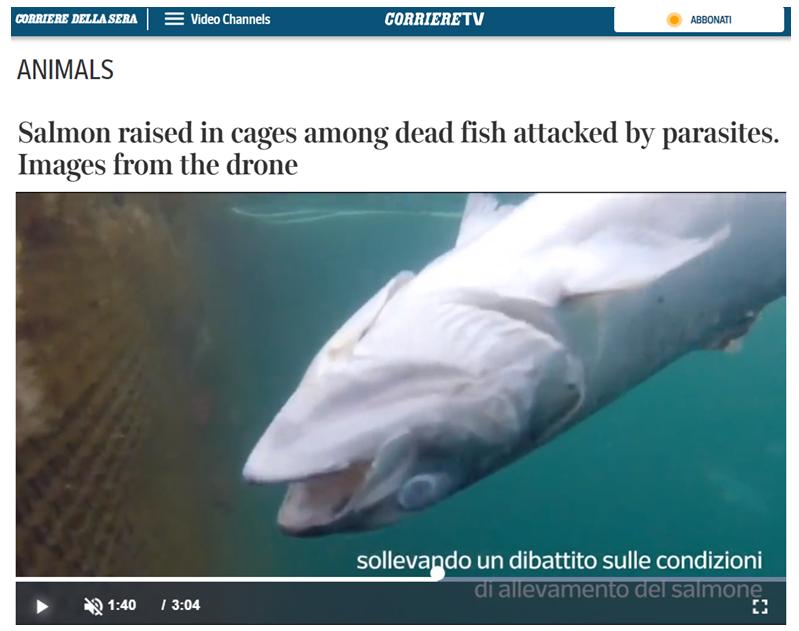Ecocide – Grave Crimes for Grave Times
Scottish Labour MSP Monica Lennon has tabled a bill in Holyrood that seeks to criminalise ecocide. Legally speaking (yuk,) ecocide is defined as the ‘unlawful or wanton acts committed with knowledge that there is a substantial likelihood of severe and either widespread or long-term damage to the environment being caused by those acts.’ In short/human, if you nae treat the planet properly, you’re guilty of an actual crime rather than an act of stupidity or ecological vandalism.

This isn’t an entirely new concept. Back in 2021, 11 indigenous groups sued French supermarket chain Casino for their part in deforestation of the Amazon after France enacted facilitating legislation in 2017. Scotland was one of the first nations to declare a climate emergency in 2019 but has since faced criticism for its lack of progress in meeting climate targets – this new bill would go some way to addressing the insertion of our money where our mouth presently resides.
South of the border, Thames Water was recently hit with a record £122.7m fine for dumping shit in the (drinking) water of England and being dost with its shareholder dividends but it’s the company who’s liable – rather than individual company directors. Much as with the law that was eventually enacted in 1989 to prohibit the 1796 legal principle that made hubands defacto not guilty of marital rape, it is a bit embarrassing that we have to say this, using legalese no less, but it’s almost certainly going to be a good thing.
First UK nation to declare a climate emergency: check. First to criminalise ecocide: (nearly a) check. Scotland is really bossing it, it would seem. The legislation, if it passes, would mean unlimited fines for companies and up to 20 years in prison for individuals. It indicates that we’re starting to take the climate emergency a little bit more seriously and are taking a liveable planet off the ‘nice to have’ and plonking it squarely on the ‘essential for life’ list – sounds promising.
The difference with Scotland’s feisty offering is that it will criminalise the actions of companies – less slap on the wrist – more clapped in chains. This both appeals to the vindictive streak in us all who relish the thought of a privileged and well-groomed CEO roughing it on B-Wing as well as potentially actually acting as a deterrent; that fabled duo of punitive and preventative. Hell, it might even be effective.

Mossmorran
Parking the very real concern about what impact this will have on jobs, at this stage it’s not clear who will and won’t be potentially liable but we can speculate that it’s any person or organisation who pollutes and degrade’s Scotland’s environment. Tarmac’s cement works in Dunbar, the WIlliam Grant whisky distillery in Girvan and ExxonMobil’s ethylene plant at Mossmorran are some of the worst ecological offenders but, broadly speaking, any industry being conducted at scale in Scotland, is probably damaging the environment – which errs perilously close to committing ecocide should the bill pass. Oil spills, destruction of the Amazon and industrial fishing practices are all considered ecocidal. The latter is likely to have the greatest effect on the Scottish economy as Scotland’s marine industries are a not insignificant sector of the economy and offers year-round employment in communities (full of people who have constantly increasing living costs) and there is an understandable worry that suing the trews off all of the corporations might end up penalising people who are just trying to put food on the table. Blunt though legislative tools can sometimes be, failing to tackle the climate emergency will cost more in the long term – both in terms of human suffering and economic strife.

Back to Scotland being progressive and getting shit done – the Ecocide Bill has the potential to demonstrate what Holyrood can achieve when it, unlike the rest of the world, doesn’t stumble on partisan differences but works together for the greater good; the bill has the support of more than 50 MSPs hailing from all the major parties which smells distinctly like Holyrood kicking arses and taking names. It’s also in line with an EU directive – cough, cough.
Where do you draw the line? Are private individuals to be found guilty of ecological misdemeanors? Will this be a slippery slope to prosecuting people for failing to sort their recycling assiduously? This is a misplaced anxiety – the bill isn’t seeking to come after ‘small fry,’ but rather to encourage companies and industries to behave in an environmentally responsible way in order to avoid malpractice suits.
Monica Lennon says, ‘criminals who are damaging Scotland’s precious natural environment do not fear the law, and that must change.’
The climate emergency is widely accepted (finally) as being both real and extremely problematic for all life on our planet but there is precious little agreement on what to do about it. Legislation that makes it illegal to trash our shared home serves both to deter the environmental vandals and challenges the narrative of inevitability of such damage. We can live in a less damaging way – industry can conduct itself better – both are imperative – hopefully soon, legally so.
See also:
Scottish Salmon Greenwashing Propaganda – Bella Caledonia
Ten Scottish salmon farms reported over 50% mortality in 2023 – Bella Caledonia
Scotland’s Salmon Crisis – Bella Caledonia
Mossmorrans Catastrophic Emissions and Flares Demand Urgent Motion – Bella Caledonia

I hope she gets broadest support. It fits into the movement to recognise the rights of natural entities as in Macfarlanes book Is a river alive.
Although the main priority of such a law must be the prevention of ecocide, with legal punishing of offenders as means of deterring others (and stopping repeat offences), not an end in itself. This should mean that anyone about to commit ecocide puts themselves outside the protection of the law, and absolves anyone stopping them (by reasonable means) of any crime necessarily involved. Otherwise it would simply be too late.
In David Attenborough and Colin Butfield’s book Ocean: Earth’s Last Wilderness (2025) the authors make the point that it is easier to prevent new industries (like deep sea mining) from starting than to try to reign in existing industries (who will have their political creatures). An ecocide law should be a sufficient obstacle to develop new, harmful commercial practices. Which includes deterring investors and state approval officials (and fines are not going to be enough, nor comfy prison sentences).
And of course NATO and any similar military pact must be outlawed as a consequence, just as nuclear weapons have been by a quorum of countries.
It will be interesting to see if Charles Windsor tries (or has tried) to use King’s Consent (Crown’s Consent) before the Ecocide Bill becomes law.
https://www.parliament.scot/bills-and-laws/about-bills/crown-consent
This is a good idea but let’s see how it is applied in practice (assuming it is enacted). At present the rule of law has no real substance in Scotland.
Water in Scotland is a complete scandal as we all find ourselves forced to subsidise the profits of the very companies polluting England’s rivers and beaches with impunity. And even Audit Scotland just sidestep any concerns raised.
It is currently impossible to object to electricity grid and mobile data developments on public or environmental health grounds; there has been no environmental assessment, and concerns I have raised are flatly rejected without any explanation by all authorities. The UKHSA refused even to investigate peer-reviewed evidence of harm and inadequate safety standards presented to them.
The police tell me the NC500 and its customers (i.e. self-contained drive-thru tourists that like to ‘go wild in the country’) are ‘entitled’ to do as they please, where and when they please and that even the 20 mph speed limit is not enforced against them. Incidents I have reported where public safety, and human rights are affected, are dismissed by the police as not matters for them.
So in practice it matters little what rights we give to nature if we cannot even uphold human rights in practice.
I have found it impossible to hold any authority or corporate interest to account. No solicitor in Scotland will help at all. The problem seems to me to be crown immunity. Charles III is above the law personally and he also has the power to grant legal immunity to anyone and any organisation he pleases. And he does, though nobody talks about it. I have found it impossible to hold the Scottish Government, ombudsmen, local authorities, community councils, police to account at all. The legal profession will not take action or explain why.
So it’s a good idea but unless the law starts to apply equally to all, and unless all have access to the law (currently still a rich man’s game) it will be for show only, and we will be even more cynical than before.
I agree John Wood. We need to abolish the Crown Powers and create a democratic republic